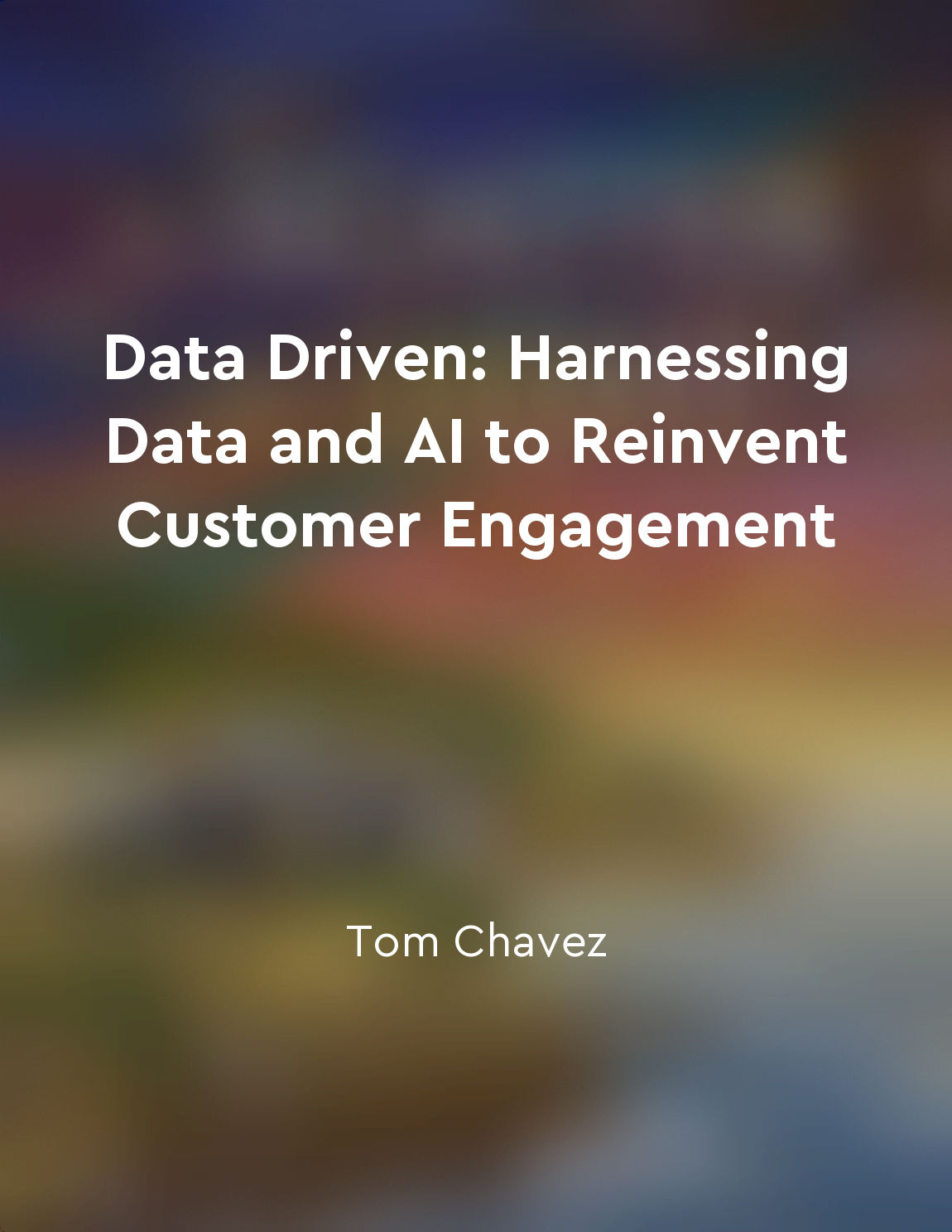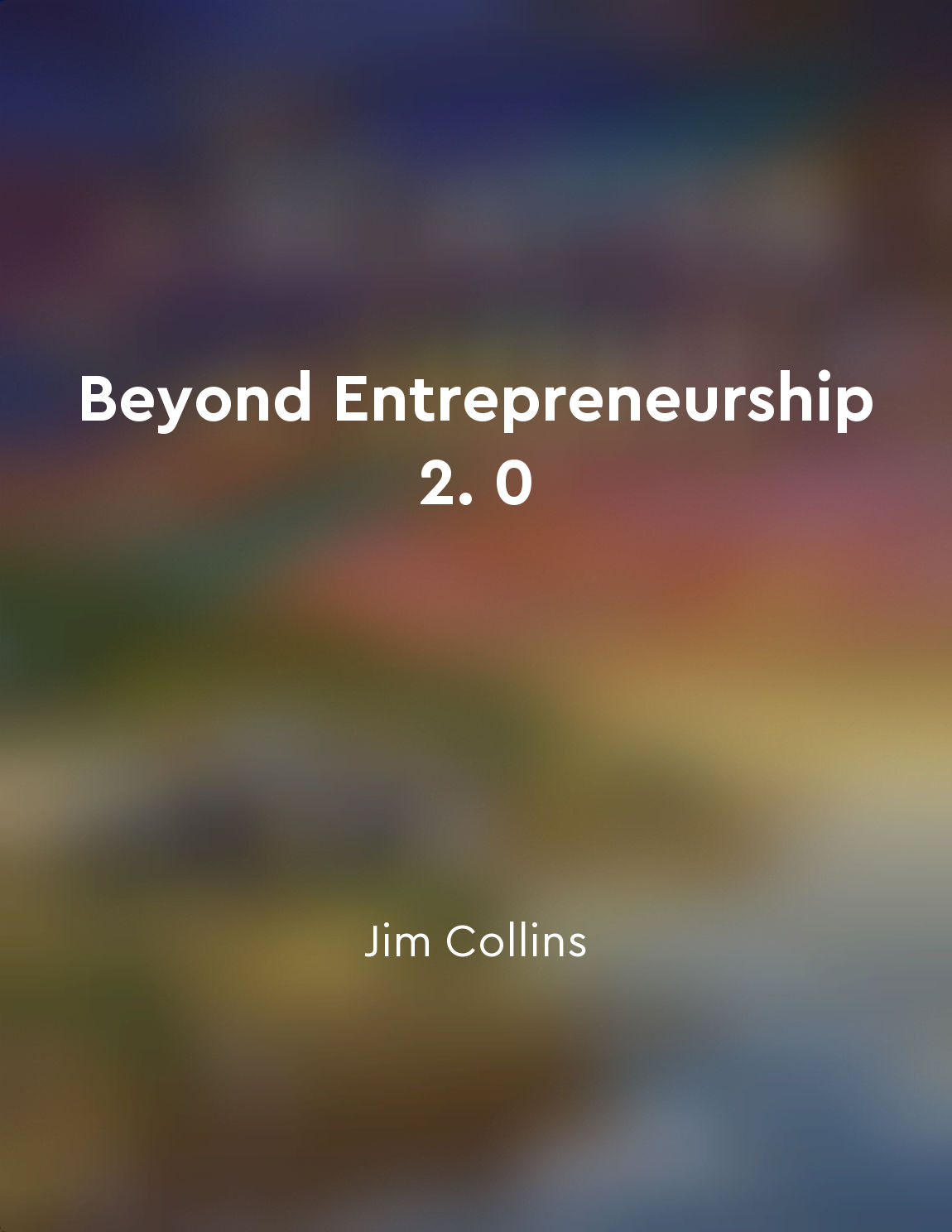Companies must adapt to the intangible economy to stay competitive from "summary" of Capitalism without Capital by Jonathan Haskel,Stian Westlake
To stay competitive in today's economy, companies must recognize the increasing importance of intangible assets. Traditional measures of investment, such as machinery and buildings, are no longer sufficient indicators of a firm's value. In fact, intangible assets such as intellectual property, brand recognition, and human capital now make up a significant portion of a company's worth. This shift towards intangible assets has major implications for how businesses operate. Companies must now focus on developing and leveraging these intangible assets to maintain a competitive edge. This includes investing in research and development, marketing, and employee training to enhance the value of their intangible assets. Moreover, companies must adapt their business models to the intangible economy. This means moving away from a focus on physical assets and towards a more flexible, innovative approach that can quickly respond to changing market conditions. By embracing digital technologies and data analytics, companies can better understand and capitalize on their intangible assets. Importantly, companies must also recognize the need for new metrics to measure the value of intangible assets. Traditional accounting methods may not accurately capture the true worth of these assets, leading to undervaluation and missed opportunities. By developing new approaches to valuing intangible assets, companies can better assess their competitive position and make informed strategic decisions.- The shift towards an intangible economy requires companies to rethink their approach to business. By recognizing the importance of intangible assets, adapting their business models, and developing new metrics for valuation, companies can position themselves for success in the modern economy. Failure to adapt to the intangible economy may leave companies at a competitive disadvantage, unable to fully realize their potential in an increasingly digital and knowledge-based marketplace.
Similar Posts
Develop a strong customer acquisition strategy
To build a successful startup, it is crucial to establish a solid plan for acquiring customers. This involves more than just cr...
The need for lifelong learning is increasing
As we move further into the 21st century, the pace of technological change shows no signs of slowing down. In fact, it is only ...
Identify and eliminate growth bottlenecks in your processes
To achieve sustainable growth, it is crucial to constantly evaluate your processes and pinpoint any bottlenecks that may be hin...
Diversification can help reduce risk in a portfolio
Diversification can help reduce risk in a portfolio by spreading investments across different asset classes, industries, and ge...

AI streamlines operational processes
AI has the remarkable ability to automate repetitive tasks and streamline operational processes within organizations. By levera...

Ethics and morality were called into question
The characters in 'When the Heavens Went on Sale' found themselves in a moral dilemma. They were forced to confront the complex...

Foster a culture of trust and accountability
To truly build a successful organization, it is essential to create an environment where trust and accountability are not only ...
Use Objectives and Key Results (OKRs) to measure progress
Objectives and Key Results (OKRs) is a goal-setting system that can help organizations measure progress and stay focused on wha...
Seek growth through discomfort
The reality is that growth doesn't happen when you're comfortable. It's easy to stay within the confines of what we know, what ...
Nanotechnology offers solutions at a molecular level
As we delve into the world of nanotechnology, we uncover a realm where solutions are crafted at a scale so small, they operate ...

